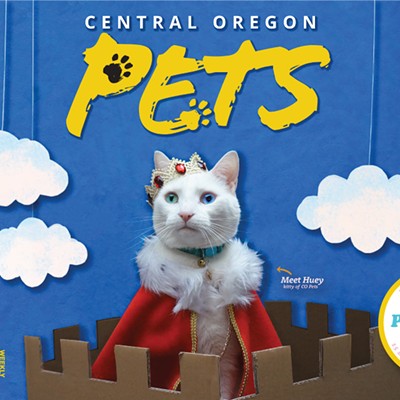Oakland, Calif., documentary filmmaker Kristy Guevara-Flanagan's Wonder Women!, the untold story of super heroines, is one of the documentaries defining BendFilm as a festival not just for features, but ideas.
Former Source staffer Josh Beddingfield caught up with Guevara-Flanagan in California:
the Source: Your previous film, Going on 13, followed the lives of four young girls in the process of becoming adolescents. I'm guessing you came at Wonder Woman! more from the perspective of a cultural observer than as a comic fan per se?
Kristy Guevara-Flanagan: That’s right. In making Going on 13, I was struck by just how much pop culture influences our lives; not a second goes by that there isn’t a commercial, a billboard, a pop-up ad lobbed at us and our kids. The lines between product and plot lines are hard to decipher for even the most sophisticated viewer, so, it did leave me wondering what impact all this has on our young folk. And, of course, I was already curious about seeing this through the lens of gender after having spent four years filming the girls from Going on 13. What do we learn about ourselves, our values, from these images if we just consume low-brow entertainment?
tS: In watching screenings of Wonder Women! with high schoolers in the audience, I was left wondering how much they—especially the boys—had given any thought to issues of how women are portrayed in pop culture. What has been your response from younger folks?
KGF: This is always really interesting to me. I think both young men and women are kinda shy about responding to the film. The girls will come up afterwards and say they did reports on the suffragette movement or that they are into video making. But for boys, I would think it would be hard for them not to feel blamed in a way. I think the film is more complex than that, of course, but who, during the hell of adolescence, wants to hear how good they've got it? Nonetheless, I have had positive feedback from both boys and girls along the lines of “thumbs up”. And then who knows how the issues percolate after the fact?
tS: Have you gotten much flak from hardcore comic fans? They can be a pretty protective group when it comes to their heroes (and heroines)?
KGF: Hardcore comic fans, like any fans, like to really get down to the nitty gritty. They don’t like their favorite characters/artists/writers or genre to be critiqued, but mostly they want to talk shop. I think instead of flak, I get mostly disappointment that I can’t debate the merits of a certain issue, author, weaponry or costume in as much detail as they’d like. And I feel so bad that I can’t geek out at the same level.
tS: Invisible jet, magic lasso, or Amazonium bracelets...which will your daughter be getting for her first birthday?
KGF: Hmmm. I think I’ll start with something minimal and go with the bracelets. Maybe they can deflect mean words instead of bullets.
tS: Can you speak to the state of funding for documentary filmmaking? There is certainly a lot of buzz about crowd-sourcing and Kickstarter, which you used in making Wonder Women!. Is this the wave of the future or just an auxiliary to traditional fundraising?
KGF: I have to say, Kickstarter was an amazing tool for us. And it came along just in the nick of time. Funding for documentaries is like selling poetry chapbooks at Walmart. Ok, maybe that’s a bad analogy. But it’s tough: lots of competition and little sources of money. Plus, you do need some money to get going and put a trailer together (which is how you get the funding in the first place). Our country puts aside very little money for the arts compared to other developed countries. So Kickstarter is a super creative way to connect audiences with artists...even little known artists. And, your supporters really do cheer you on. They become personally invested in the success of your project. Which totally rocks.
tS: You also teach film and video production to community college students. What is your take on the state of young women getting into filmmaking?
KGF: I have super high expectations of my students and I am always a little shocked at the lack of imagination of some of the content. You have to push hard to be original as a filmmaker, or to get them to be creative as a teacher. The majority of my students are male and that always surprises me. And many of my female students feel shy about the technology, which makes sense if they are in the minority. I worry that their voices don’t get heard. But there are some incredible programs out there, like Reel Girls in Seattle, that are geared towards mentoring girls in media making and I see a lot of success there. They make awesome mashups with girls and boys toy commercials.




















